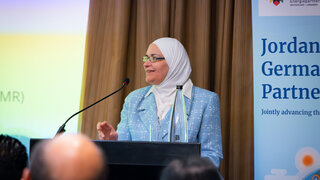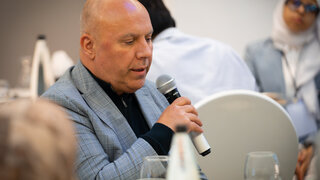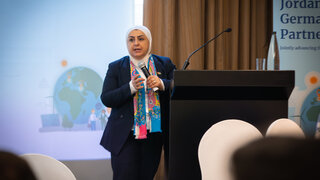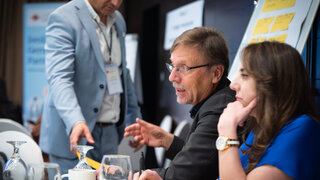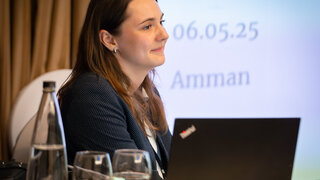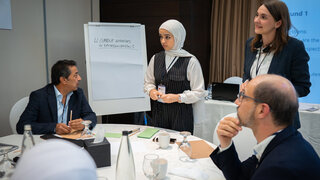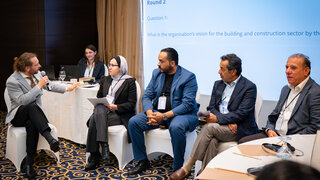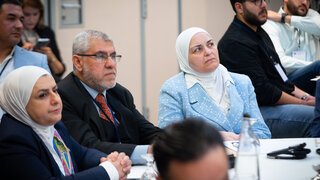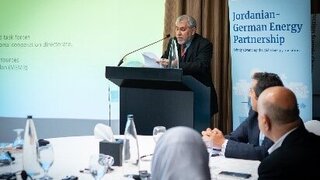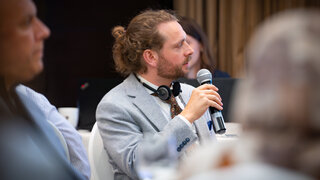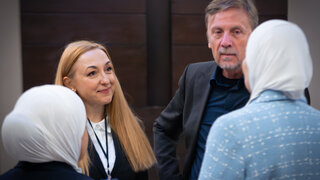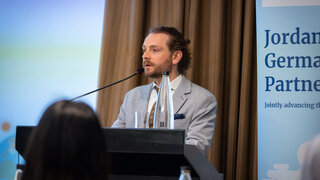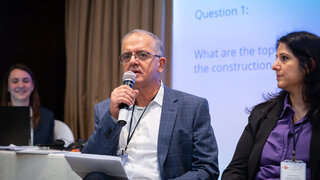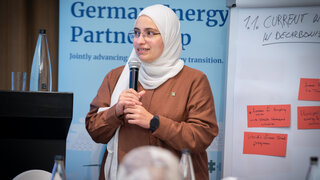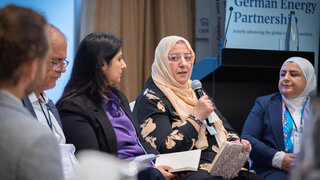Powering Progress: A New Step in the Jordanian-German Energy Partnership
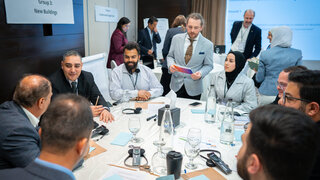
Amman, May 6 – A major step forward was taken in the Jordanian-German Energy Partnership as a kick-off workshop officially launched the development of a Roadmap for Sustainability in Jordan’s Building and Construction Sector. This milestone initiative falls under the Energy Efficiency Working Group of the bilateral partnership and marks a pivotal effort to transform Jordan’s built environment toward energy efficiency and climate resilience.
The workshop, held in Amman, brought together a wide array of engaged stakeholders. Opening remarks were delivered by H.E. Secretary General Eng. Ammani Al-Azzam and Mr. Nidal Al-Qasem from the Ministry of Energy and Mineral Resources (MEMR), Mr. Andreas Rissmann from the German Federal Ministry for Economic Affairs and Energy (BMWE), and Ms. Celia Martinez Juez representing the United Nations Environment Programme (UNEP) and the Global Alliance for Buildings and Construction (GlobalABC). Their speeches set a constructive, future-focused tone for the collaborative journey ahead.
The roadmap development is being co-led by Eng. Lina Mobaideen, Director of the Energy Efficiency and Climate Action Directorate at MEMR, and Eng. Thilo Cunz, Director of International Building and Construction at the German Energy Agency (dena). Grounded in the GlobalABC structural framework and approach, the roadmap will serve as a strategic guide for transforming Jordan’s buildings and construction landscape into a model of sustainability and efficiency. MEMR, BMWE, and dena—are active members of the GlobalABC.
During the event, Eng. Mobaideen provided a comprehensive overview of the current challenges and opportunities in Jordan’s building sector, while Eng. Cunz presented the roadmap methodology and shared insights from the Roadmap for the Building and Construction Sector in China, offering valuable international perspectives.
Interactive sessions and expert panels addressed core topics such as urban planning, sustainable construction supply chains, and improving the energy performance of both existing and new buildings. With guidance from a newly formed Steering Committee, the workshop featured contributions from a wide range of stakeholders, including representatives from various ministries, local authorities, industry associations, international organizations, and financial institutions.
Participating entities included the Jordanian Ministry of Energy and Mineral Resources, the Renewable Energy and Energy Efficiency Fund, the Ministry of Local Administration, the Greater Amman Municipality, the Construction Contractors Association, the Ministry of Environment, the Ministry of Public Works and Housing, the Energy and Minerals Regulatory Commission-EMRC,
the Jordan Engineers Association, the Royal Scientific Society, the Jordan Green Building council, the World Bank, and the Association of Banks in Jordan, among others.
The consensus was clear: cross-sector collaboration, integrated planning, and knowledge exchange are key to driving progress.
This roadmap is more than a policy document—it’s a shared vision for a climate-resilient, energy-smart, and inclusive urban future. Together, Jordan and Germany are laying the foundation for buildings that not only consume less energy but also contribute to sustainable development and improved quality of life for future generations.
